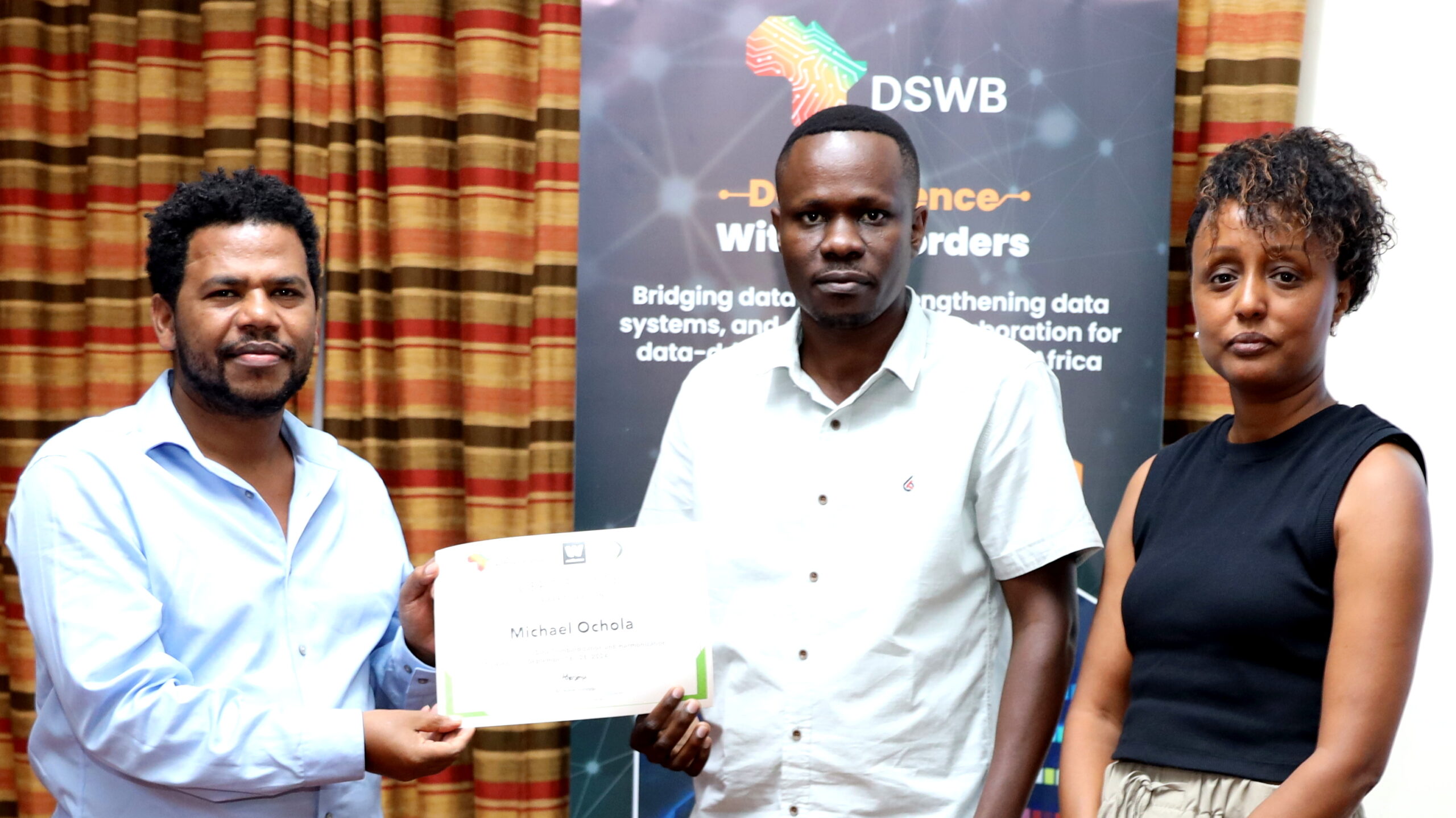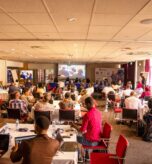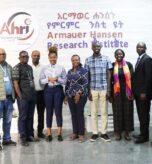 Written by Michael Ochola and Christine Ger Ochola
Written by Michael Ochola and Christine Ger Ochola
Can you tell us a bit about yourself and your journey leading up to your involvement with the Data Science Without Borders (DSWB) initiative?
My name is Michael Ochola, my friends and family like to call me Mike. I grew up in Kisumu, located in the western part of Kenya on the outskirts of the city, with a blend of rural and urban experiences. As a young boy, I enjoyed playing soccer, watching movies, cycling, and was fascinated by planes. We made paper planes and enjoyed seeing them fly. During my primary and high school years, I developed a keen interest in sciences and mathematics, which eventually led me to pursue a course in computing.
Fast forward as an undergraduate, data science was at its formative stages, and most of the tools we enjoy today were probably being conceptualized by the founding scholars of data science. I remember taking a course in my fourth year in Artificial Intelligence (AI), though what I learned then was centered around programming logic and the application of heuristics in solving complex computational challenges. An AI class today would be very interesting with buzzwords like machine learning, deep learning, and even federated learning.
I later started working as a computer analyst. My first assignment was to develop a web application to manage data for longitudinal population dynamics study, under the guidance of great minds on population dynamics research in Africa. This is where my fascination with data science truly took shape. I remember an occasion when we were doing some data exploration, and my supervisor then could tell that ‘something was a mess’ with the data. I thought he possessed some ‘magical powers’ to be able to tell such a difference between ‘good’ and ‘bad’ data, just like being able at this dispensation, to tell AI-generated vis-a-vee actual content. I wanted to have this ‘power’ too. In hindsight I later learned, it was all about understanding probability distributions; most of the data we collected then was tested against specific probability distributions.
My passion for using data to solve complex challenges and drive impactful decisions led me to strategic roles that honed my skills in data standardization, harmonization, integration, machine learning, model development, and deployment. This led to my natural progression to DSWB, where I collaborate with like-minded professionals across Africa, fostering innovation and knowledge-sharing to address some of the continent’s most pressing health and population challenges.
How has being part of the Data Science Without Borders (DSWB) initiative contributed to your growth?
Being part of DSWB has significantly broadened my professional horizons. It has provided opportunities to work on high-impact projects, collaborate with a diverse network of experts, and access cutting-edge tools and technologies. The initiative has also enhanced my leadership skills, particularly in managing cross-functional teams and delivering training workshops that empower others to harness the power of data science.

How has data science transformed your work?
Data science has fundamentally reshaped how I approach problem-solving and decision-making. It has provided me with the skills to develop tools and methodologies to extract meaningful insights from different data formats, enabling evidence-based strategies. With a vibrant data community, open-source tools, and cloud technology, we have used data science to streamline our research processes, enhance data quality, and ensure real-time collaboration among global partners. This is not only applicable to work but can transcend to personal life, for instance, prudent financial management by developing or customizing available tools to visualize one’s monthly or yearly spending by feeding mobile money transactions or monthly bank statements to such algorithms. Therefore, transformation is limitless, bounded only by the scope of one’s imagination and willingness to try out new approaches.
Can you share a specific example of a challenge you faced and how data science helped you overcome it?
One notable challenge was managing disparate longitudinal mental health datasets collected across multiple sites from different mental health studies in Africa. These datasets had varying formats and standards, making it difficult to derive actionable insights to inform mental health policy recommendations. By leveraging data science techniques, we developed a central data warehouse and implemented an Extract Transform and Load (ETL) pipeline to standardize and integrate the datasets into a unified schema and format. This solution not only improved data accessibility but also enabled seamless analysis and visualization, significantly enhancing the research outcomes. We believe in innovation; the data warehouse schema is dynamically designed to ingest not only mental health but also demographic surveillance system data. DSWB allows us to re-use the technology with some of the pathfinders’ longitudinal data.
What do you consider your biggest accomplishment in applying data science, and how has it impacted others around you?
Data science has empowered me to develop solutions that transcend the limitations of conventional programming. Consider tasks like categorizing emails as spam or determining the likelihood of a loan applicant defaulting challenges where traditional software approaches often fall short. Leveraging data science techniques, I successfully implemented a predictive model for a digital lending application, which not only reduced loan processing times from hours to mere seconds but also significantly lowered the default risk from nearly 40% to just 10%. At the African Population and Health Research Center (APHRC), we leverage data science to transform the discovery and accessibility of African research data, striving to ensure that future AI products are developed free from bias occasioned by lack of data or metadata discoverability.
What inspires you to keep pushing boundaries in data science, and what message would you share with others who are just starting out?
What inspires me is the transformative potential of data science to address critical issues and improve lives across Africa. The ability to turn raw data into actionable insights that drive policy and innovation keeps me motivated. To those starting out, I would say: embrace curiosity, seek out strategic opportunities to learn, and don’t shy away from challenges. Data science is a journey of continuous discovery, and the impact you can make is boundless.










